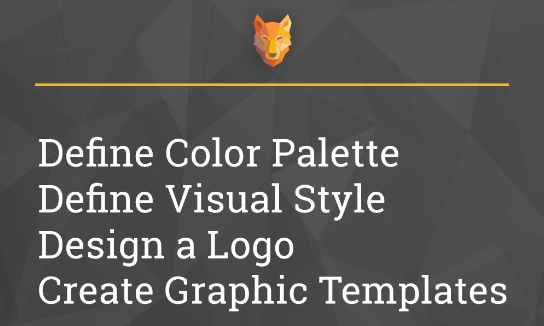You are viewing our site as an Agent, Switch Your View:
Agent | Broker Reset Filters to Default Back to ListHow to Create Your Personal Real Estate Brand Online
October 18 2018
 The internet is exploding—every nook and cranny is saturated with real estate agents working hard to make their mark and generate new clients—and for good reason. According to the National Association of REALTORS® (NAR), over half of homebuyers aged 37 years and younger—the next generation of homebuyers—found their home through the internet. While millennials are most likely to find their homes online, other generations are getting tech-savvy too— 51 percent of homebuyers aged 38 to 52 years found their homes online, too.
The internet is exploding—every nook and cranny is saturated with real estate agents working hard to make their mark and generate new clients—and for good reason. According to the National Association of REALTORS® (NAR), over half of homebuyers aged 37 years and younger—the next generation of homebuyers—found their home through the internet. While millennials are most likely to find their homes online, other generations are getting tech-savvy too— 51 percent of homebuyers aged 38 to 52 years found their homes online, too.
In this oversaturated market, standing out and making your mark a must. There is one component that is more important than all others when it comes to making yourself known online: your personal brand. A successful personal brand is one that is:
- Memorable
- Consistent
- Authentic
Here we'll teach you what a personal brand is and how to create a brilliant one that will ensure your audience remembers you as they search online.
A Personal Brand Is...
The way you communicate, represent, and differentiate yourself from others in the market. It's a representation of what makes you, you. It's how you market yourself on and offline—whether you're trying to or not, every message you send and conversation you have represents something about you to the person you're talking to. The same goes for social media posts, blogs, and your website. While many think of a personal brand as solely a marketing ploy, it needs to represent the authentic and real you: people can tell when you're faking it or trying to make a good impression for the sake of it, so it's best to base your personal brand off of your personality and to not manufacture something that wasn't there before.
A good personal brand is one that is based off of your unique traits that make you stand out—whether you're great with the latest technology or have an amazing track record working on a certain kind of property—there is something about everyone that makes them unique.
Find What Makes You, You
To narrow down your skills and traits that set you apart from the competition:
Survey your unique qualities and what makes you different.
Example: Skills with negotiation, speaking a second language, amazing with social media and marketing, useful experience from a past job, etc.
Ask your mentor what they think about you.
Ask your mentor or someone you trust what they think your greatest skills are and what makes you different from others. Outside perspectives are great at showing what others think about you.
Revisit your business goals. What are they and where do you want to be in five years?
This answer looks very different for everyone and can drastically shape your personal brand.
Assess your market.
Where you work has a lot to do with your personal brand. A calm, laid-back suburban home agent is much different than a high-flying city agent in both language and approach to business.
Consider your values.
What is important to you in life? If you can make a difference in the world through real estate, what do you want it to be?
State Your Mission
Once you've thought long and hard, analyzed yourself and your goals, and asked others what they think of you, create a mission statement that defines your personal brand.
Your mission statement should define who you are and what you're about. But remember – just like you, a mission statement can and should change over time.
A mission statement can be humble but still looking to grow:
"I'm a real estate agent looking to make long-lasting connections with the community through events and in-person outreach to help people find their dream homes."
Or big and bold:
"Aiming to serve my clients and be the best real estate agent they meet, eventually becoming the #1 real estate agent in my area for [specific type of properties]."
Your mission statement will be the basis on which you base your writing tone, general style, and visual look.
Let Your Mission Power Your Voice and Visuals
With your mission statement in hand, it's time to apply it.
Weaving in your personal brand throughout your story, marketing materials, and communications is essential for getting the point across to your future and existing clients.
Basing all of your communications off of a single mission statement means that your personal brand will be consistent and effective. Use your personal brand to consider every aspect of your brand, from your email signature to your promotional swag. Assess your current strategy and then try and apply your new mission statement to:
- Your tone
- Website design
- Graphic design
- Print materials
- Business cards
- Event materials
Injecting your personal brand into every aspect of your business ensures consistency, and it's important to ensure everyone who meets you in person or online understands your personal brand in the same way.
To incorporate your personal brand mission statement into your writing, come up with a set of words that describe you. Selecting 1-3 adjectives—like go-getter, empathetic, adventurous, energetic, or considerate—can help you find a writing tone that matches your brand. Try to keep your writing centered on one of the 2-3 words that describe you. Even if the adjectives themselves are not included, keeping all of your content "on-brand" and written in your voice is key for presenting your personal brand in writing. Use your newfound voice to go forth and write blogs to bring in the leads (stay tuned: we'll talk more about blogs later in this post).
We know you're an agent, not a graphic designer, but creating visuals and branded images with your personal brand incorporated is also a must. Follow the steps below to make awesome graphics that are aligned with your personal brand:

Define your color palette: It should be simple: most include 2-3 colors. Make sure they don't clash by using programs like Adobe's Color Wheel to see them side by side (and grab their codes to use in designs later). Research which colors your competitors are using and try something different to make yourself stand out.
Define your visual style: This goes beyond just color – are there any shapes or design elements that will make your brand stand out? Which fonts will you use?
Design a logo or hire a designer to make one for you: A logo is an extremely important piece of your personal branding and should be included in all of your marketing materials going forward.
Create graphic templates: If you're great at designing, go ahead and use Adobe Photoshop. If you're looking for something simpler, try a drag-and-drop template program like Canva, Piktochart, or Pic Monkey.
Back to Basics
Website
Your website needs to be powerful and usable to ensure you can manage your leads and start a successful real estate blog.
Blog
One of the best ways to get the word out about your brand is to have a blog. Read How to Create a Great Real Estate Blog to learn how to set up a blog and get blog topic ideas.
Social Media Accounts
Make sure your brand name is available on every social account you might want to use, and register it on all of them, even if you don't plan on being active just yet. This will save you a lot of time and effort in the long-run. Once that's all said and done, check out our blog How to Use Social Media to Connect with Real Estate Leads to learn how to use these powerful tools to your advantage.
Email templates don't have to be complicated, but they do have to be branded. Check out our guide to creating amazing branded real estate email templates to learn more about how to express your personal brand through visuals and template design.
Spread the Word
Once you have everything together – from your mission statement to social handles – schedule "Day 0," the day that you will begin using your personal brand mission statement, writing style, and graphic designs on your agent website, blog, print materials, and everything else you use to market yourself. After Day 0, your personal brand might shift and change to suit your needs and the needs of your clients, but the most important thing is that you're consistent and never give up on making your mark. After all, the road to defining and using your personal brand effectively is a long and winding one, but it's one of the most important things you can do to set yourself apart from the competition and improve your marketing tactics long-term.
To view the original article, visit the WolfNet blog.









